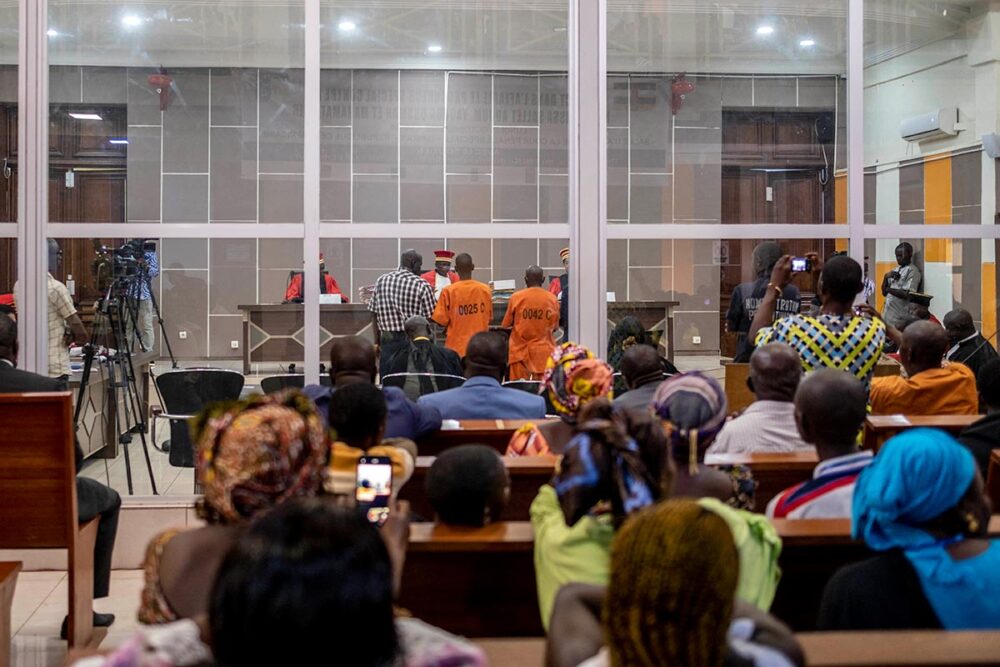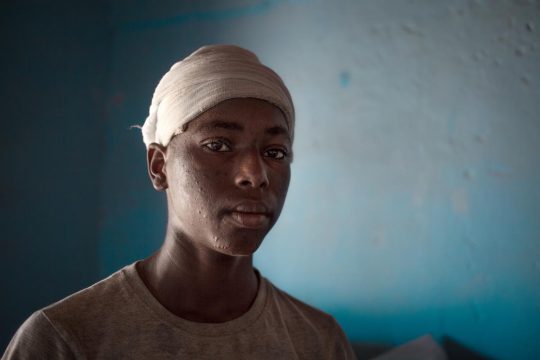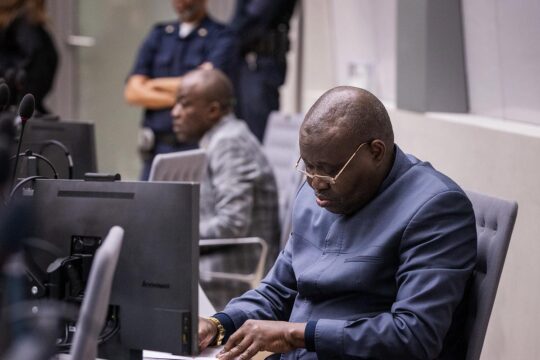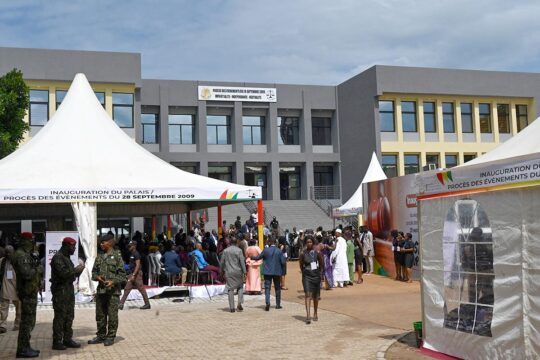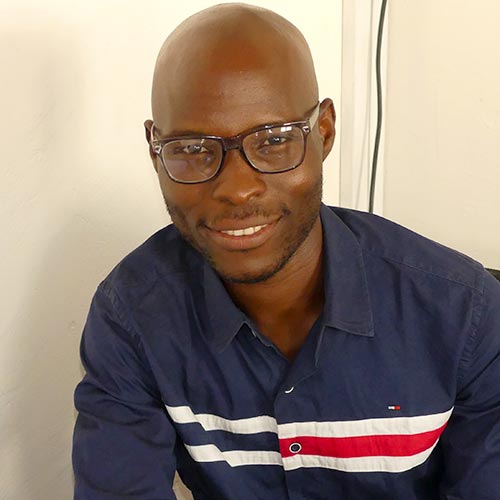As the Special Criminal Court (SCC) enters the second year of its second five-year mandate, the UN-backed hybrid tribunal based in Bangui is preparing to pass the reparations test. Like the Court, the amounts are modest, the victims repaired few, and the judges’ stated intention is to ensure that they receive these little reparations without delay.
“Reparation must be effective,” stressed the appeal chamber in its October 23 decision on the civil interests of victims of the May 21, 2019 Koundjili and Lémouna massacre. While a greater number of victims were taken into account on appeal, the total amount of compensation was revised downwards compared with the first-instance decision, from 22.8 million CFA francs (almost 35,000 euros) to 17.3 million (just over 26,000 euros).
From now on, 32 rightful claimants representing 32 people killed in the two villages will be taken into account, instead of 16 previously. For them, the amount of compensation has been reduced by more than a third - from 1 million (1,500 euros) to 350,000 CFA francs (530 euros). The amount allocated to two rape victims, who were minors at the time of the events, remains the same: 1 million for each. The four other victims of sexual violence can also expect to receive the 700,000 CFA francs awarded in the first instance - with the exception of victim YY, who died on November 17, 2022. The other reparations remain the same: 600,000 for each of the three survivors of attempted murder, and 200,000 for a young man who was tied up during the attack on his village. They concern 42 direct and indirect victims of the violence judged by the SCC in its first trial.
“Even if we consider these amounts to be insignificant, the compensation is in line with the principle of the law. It reflects the court’s financial resources,” comments civil party lawyer André Olivier Manguereka. But he and his Central African colleague Claudine Bagaza initially estimated the amount of individual and collective reparations required at 1.38 billion CFA (around 2.1 million euros) after the court’s first trial.
No wells built
The first court decision upheld the request to build memorials, as well as two wells in each of the two villages. But the appeal chamber said no to the wells. This aspect of the decision surprised Antoine Stomboli, CAR coordinator for the Global Fund for Survivors of Sexual Violence, who closely follows reparations issues in the country. “I think the ruling is not justified,” he says. “The judges are refusing to allow the construction of wells because they think the link with the violence is not well explained. But on the other hand, they say that building a memorial is justified.”
Divided, as they write in their ruling, between the desire to “take reparation measures that are appropriate to the nature and extent of the harm suffered” and awareness that “no reparation measure is likely to restore the situation that the crimes have affected nor compensate for the victims’ pain”, the appeal judges opted for pragmatism. “A reparation which, in all probability, can never be implemented would run counter to the objective of effective reparation and would be a source of frustration for the victims,” they also wrote.
“Only measures that can be implemented”
But four months after the final decision, the victims are still waiting, and getting impatient.
“All I can say is that we’re doing everything we can to ensure that reparations are made as quickly as possible. Because the SCC’s basis is that it should only order measures that can be implemented,” says Charles Mugaruka Mupenda, head of the SCC Victims and Defence Department which is in charge of implementing reparations.
At the end of December, a team from his department visited Paoua, he explains. Reparations concern individuals and other claimants. “For individual reparations, there is no problem,” says Mugaruka. But for reparations allocated to other rightful claimants, “they are allocated to the families of the deceased. So we had to identify the members of these families, and also the members that these families designate to receive the reparations”. The trip to Paoua made it possible, he says, to ascertain the designated representatives of these families. “The people designated have signed commitments to share equitably what will be granted,” he adds.
In this region, securing money transfers to victims is no mean feat. There are no banking facilities, and the villages of Koundjili and Lémouna have no access to telephone networks. After discussions with those concerned, a solution has been found, says Mugaruka. It is set out in a report that the mission drew up for the court’s attention. The victims’ aid service does not wish to divulge it, citing the safety of the beneficiaries.
A memorial: “We said no!”
“We asked for several reparation measures. But the judges rejected many of them,” storms Jean Denis Albert Horo, a beneficiary contacted by Justice Info two months after the SCC visit. “A cell phone antenna, for example, would be very useful for us. It could alert us in the event of another attack. But they preferred to recommend a memorial. We said no! In all this time since May 21, 2019, we haven’t seen any reparations. The victims are dying. Widows and orphans are suffering. The schooling of the children of our deceased brothers weighs on us. It’s not easy.” According to a source close to the court, only one of the 56 people consulted by the SCC mission wanted a memorial built. Citing local customs, most felt that the construction of a building in memory of people who died brutally could attract misfortune and encourage the repeat of such misfortunes.
Simplice Bissi, a representative of one of the beneficiary families, has been designated as the focal point by the other victims in Koundjili and Lémouna. Contacted by Justice Info in Paoua, he is impatient. “We haven’t received anything yet. The SCC promised to give 350,000 to each family of those killed in the Koundjili and Lémouna attacks. They [the members of the SCC mission] said they would return in January or February. But so far, there’s been no news. As the focal point, people come to ask me, but I don’t know what to tell them. I don’t know if they came to Paoua just to soften us up so victims would forget what happened.”
How long before distribution? “We estimate no more than three months. But it could happen earlier, possibly this March,” replies Mugaruka.
Partner projects for reparations?
The Appeal Chamber ruling also mandated the Nengo project to assist victims of sexual violence, with medical and psychological care, training and socio-economic reintegration measures. Data on victims in Koundjili and Lémouna are centralized by the Institut francophone pour la justice et la démocratie (IFJD), which supports the Nengo project. For “reasons of confidentiality”, the IFJD declined to answer questions from Justice Info. But on the ground in Paoua, the victims’ focal point is adamant: to date, no victim of sexual violence recognized for reparations has received support from any project whatsoever.
The Global Fund for Victims, represented by Stomboli, does not rule out the possibility of also being a partner in reparations. “It would still be possible to provide technical support to the SCC in implementing reparations, even if we don’t finance them directly. Repairs can’t just be financial, medical or psychological. We also need guarantees of non-repetition, i.e. remembrance, education against human rights violations, school reforms,” he says.
According to information gathered by Justice Info, the SCC budget has been revised downwards this year, although judicial activities are increasing, with a second trial in progress. The budget drawn up at the end of December was 11.9 million USD, compared with 15 million USD in 2023. By 2023, donors had contributed less than half of this budget, confirming the recurrent underfunding of the SCC since its creation. A special endowment of USD 30,000, paid by the United Nations mission in the Central African Republic (MINUSCA), which supports the court, will be the only means of implementing the reparations. The entire sum will be used to pay reparations to victims from the first trial.
“Resources are available, at least for the Paoua case. But we face enormous challenges in mobilizing resources for reparations,” confides Mugaruka, who hopes that partners supporting the SCC will be able to do better for future cases. On December 5, 2023, the SCC opened its second trial on the so-called “Ndélé 1” case, in which ten people (including six in absentia) are accused of war crimes and crimes against humanity committed in March and April 2020. This trial is currently suspended, due to a general protest movement by lawyers in the Central African Republic.


